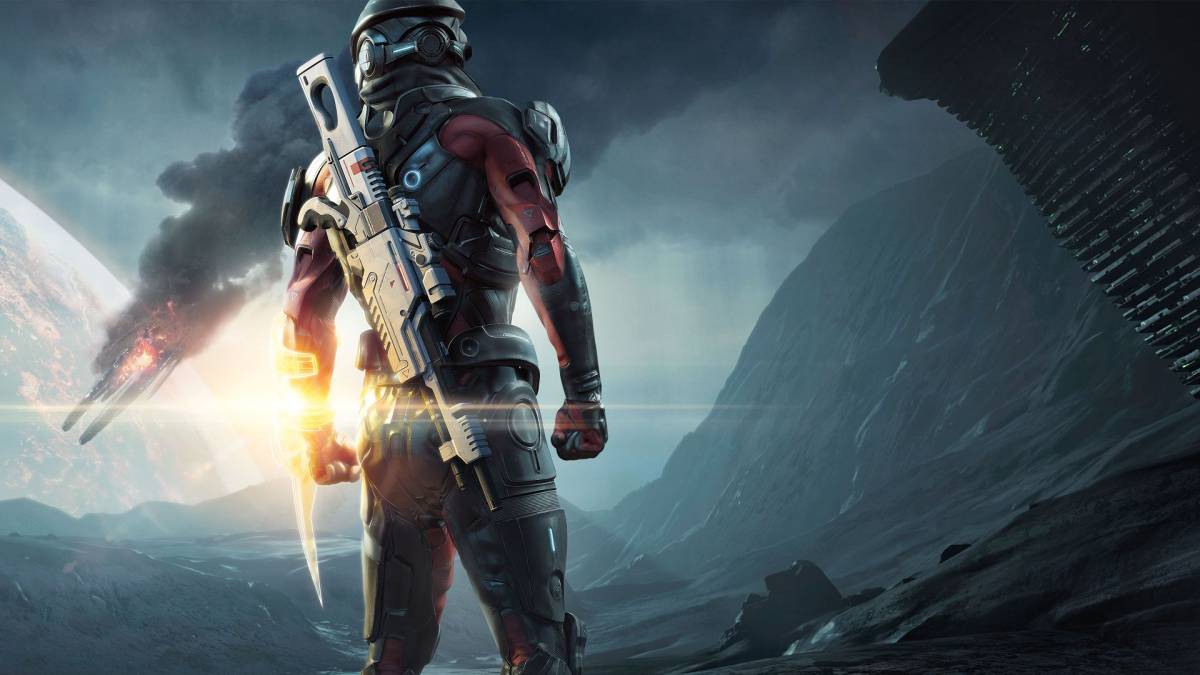NOTE: This will contain information already known from preview materials and widely available sources that nonetheless may be considered spoilers for the early game. You have been warned.
One of my core principles when it comes to entertainment is that it needs to hook me within a reasonable amount of time. When someone qualifies a film by saying the second half is better than abysmal first half, or a game “gets better” 10 hours in, I’m usually checked out. I’ve got a backlog the size of the Citadel between books, movies and games.
Over the last two days I played through Mass Effect Andromeda’s trial on Origin Access on PC, procuring a month of the service solely for this purpose. I had heard the buzz already, seen the mixed reception, the gifs, the clips of weird-looking characters and wooden dialogue, the infamous “backwards pistol” screengrab (which, by the way, is in the trial exactly as you see there). My expectations were low but my attitude was positive; I was willing to give it a go.
I’m going to start with the negatives, and we’ll wash the bad taste out with the good stuff at the end, in keeping with how the trial itself played out.
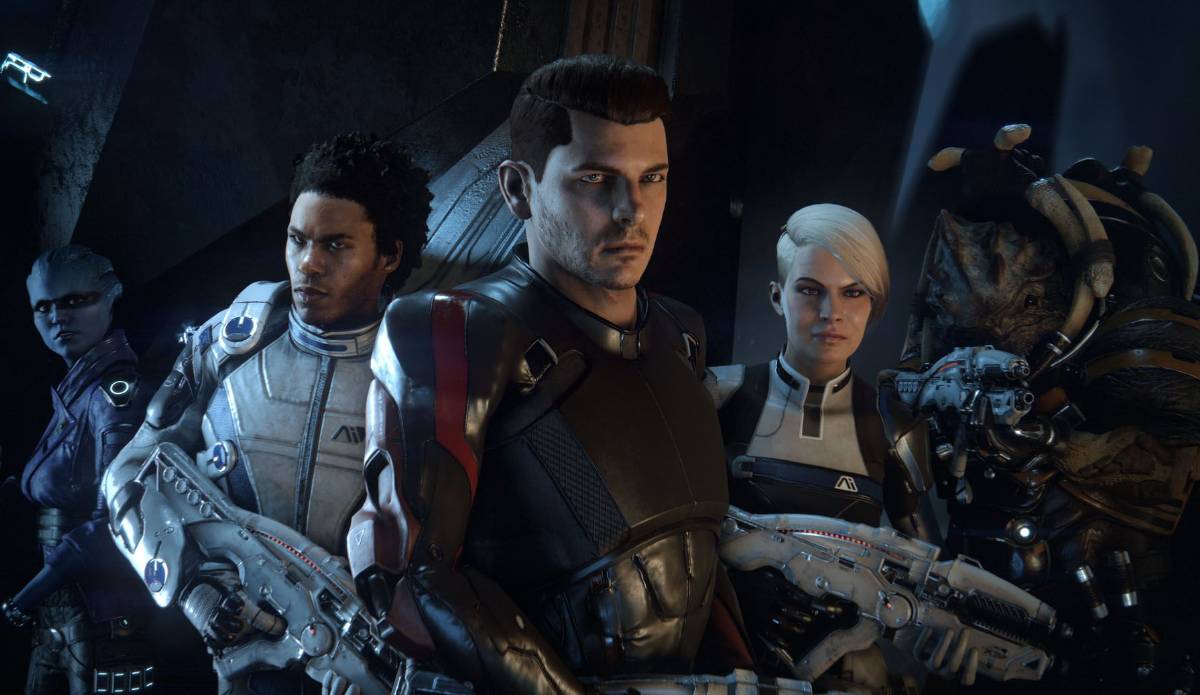
The prologue of this game is a mess. Immediately after character creation and the introduction video you awaken in Andromeda to find that the worlds previously scouted from afar and thought to be safe and habitable are anything but. Circumstances conspire to have your sibling absent from the proceedings but still aboard the ship, with only your absentee father Alec Ryder as a familiar face (to your character anyway) and the leader of the Pathfinders, who also holds the title of Pathfinder (so what does that make everyone else in the unit…?).
Right off the bat, I did not like a single character introduced on the human ark ship, Hyperion. The only two performances that stand out even slightly are Clancy Brown as Alec and Natalie Dormer as Lexi, an Asari doctor onboard the ark. They seem to be the only two characters taking their job and situation seriously.
Your team has a hostile run-in with the Kett, the new alien race, in the prologue on the surface of Hyperion’s assigned planet, with multiple casualties amidst a chaotic series of firefights on a world where the laws of physics are laughing at the expedition. Amid all of this, the only person who seems to be taking anything seriously is Alec, your N7-trained badass dad. Upon finding a fallen comrade, Liam and player-Ryder mourn disingenuously, flatly going through the motions before, not five seconds later, Liam enthusiastically wonders at the alien architecture. While standing over his friend’s body. When Alec sacrifices himself to save you and makes you the new Pathfinder, several characters, including your own, sound so unaffected it borders on laughable. Meanwhile each firefight is punctuated throughout with quips and yucks, betraying no sign of stress or awareness of the gravity of the situation – the first lifeforms you encounter in the new galaxy are messing up your planets and trying to kill you, meanwhile everyone is trying to stuff as many clichés and quips into one exchange as possible.
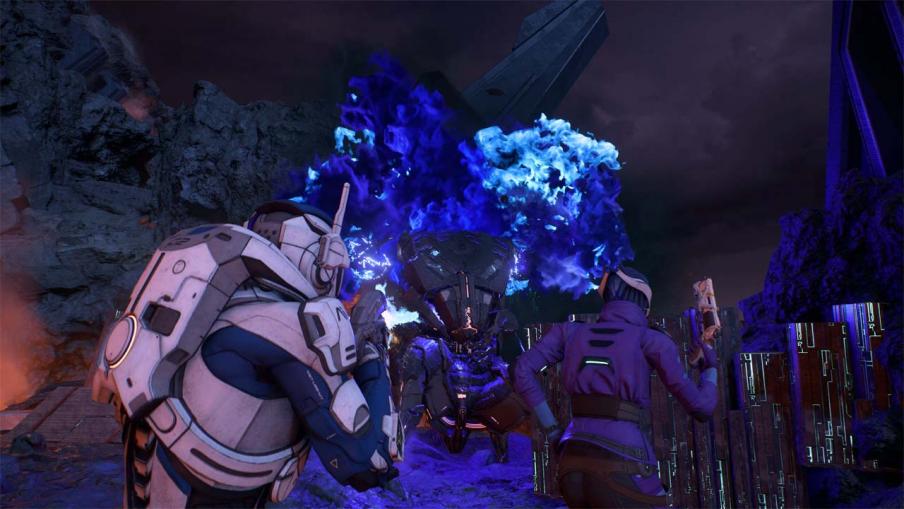
That is the core of Andromeda’s problem with its writing and dialogue. The story setup is a fairly bleak one – an expedition with limited resources and no hope of rescue or backup finds that their best-laid plans have gone just about as poorly as possible. You find the Nexus, the hub station launched ahead of the ark ships to act as the HQ for the expedition, in a state of disrepair and hopelessness after fourteen months of rationing and civil war resulted in a significant number of people exiled as a hostile faction. Hyperion’s crew continue to spit nothing but either cringe-worthy snark or wooden exposition, even when confronted with the sullen crew of Nexus.
The Pathfinders are especially egregious in this regard. The Codex makes a big deal about how each member of the team was handpicked by Alec Ryder to form the best group of people possible to act as soldiers, explorers and diplomats all at once. Their backgrounds themselves make their presence plausible, but not a single one of them carries themselves in a manner that would have me believe they deserve to be representing humanity and the other races, especially Ryder himself. No matter which dialogue stance you take, Ryder comes off as goofy and meek, wholly unprepared for even his appointed station as Alec’s subordinate, nevermind as lead Pathfinder. Your protagonist feels more like Alec’s aimless 20-something offspring who got a free ride to the new galaxy through nepotism, not a trained combatant and explorer.
Before we move on, I want to make one thing clear: I don’t need this game to be grim and dark. I’m onboard with an optimistic, hopeful tale about exploring new worlds and building a better future. I’d just like the characters to sound like they care and act believably and professionally when confronted with the challenges that comes with that endeavor. As it stands now, the story comes off as if Battlestar Galactica were written by someone trying to sound like Joss Whedon, and it just does not work.
Gameplay-wise, Andromeda makes a significant number of changes, most of them A-OK. My two significant gripes against the gameplay are with the space travel and with the presentation of the combat.
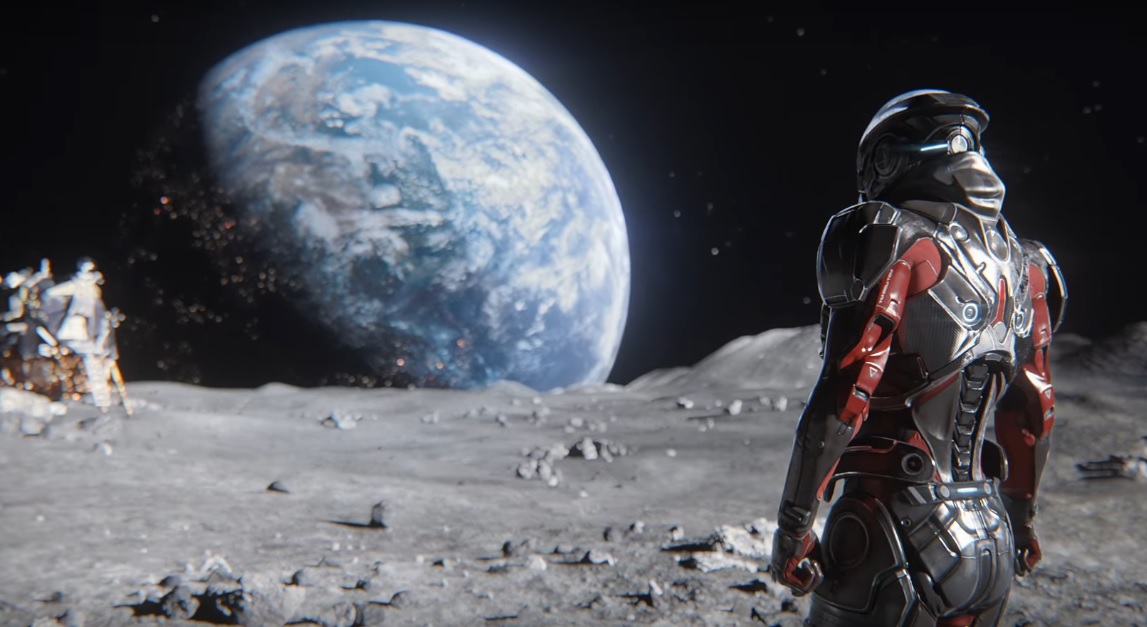
Instead of the miniature ship zipping around the galaxy map, instantly accessing whichever entity you hovered over with a click of a button, navigating between celestial bodies is now accompanied by a lengthy first-person travel animation. While this gives you a gorgeous, real-time view of your ship traveling through and between solar systems, dust and asteroids zipping by as your destination zooms into view ahead, it becomes tiresome extremely quick, especially when the vast majority of the planets have nothing on them. The 3D models of every planet, asteroid and satellite are impressive to behold, but I just don’t think it is worth the length of travel time, especially when each body only has one point of interest anyway (so far at least).
As for the combat, what I mean by presentation is the audio and visual feedback of weapons, powers, enemies, etc. Weapons just don’t have the same distinct sounds as the old trilogy, or if they do they aren’t mixed in very well to be heard. On top of this, where weapons and powers used to hit hard and produce highly visible particle effects, here everything feels less noticeable. Utilitywise, everything still works just fine; it is clear when you’ve overloaded someone’s shields, blown their head apart with a sniper rifle, set them on fire, watched your companion biotic charge someone into oblivion, etc, but it just doesn’t feel quite as satisfying and visceral as the visual and audio spectacle of the latter two games in the Shepard trilogy.
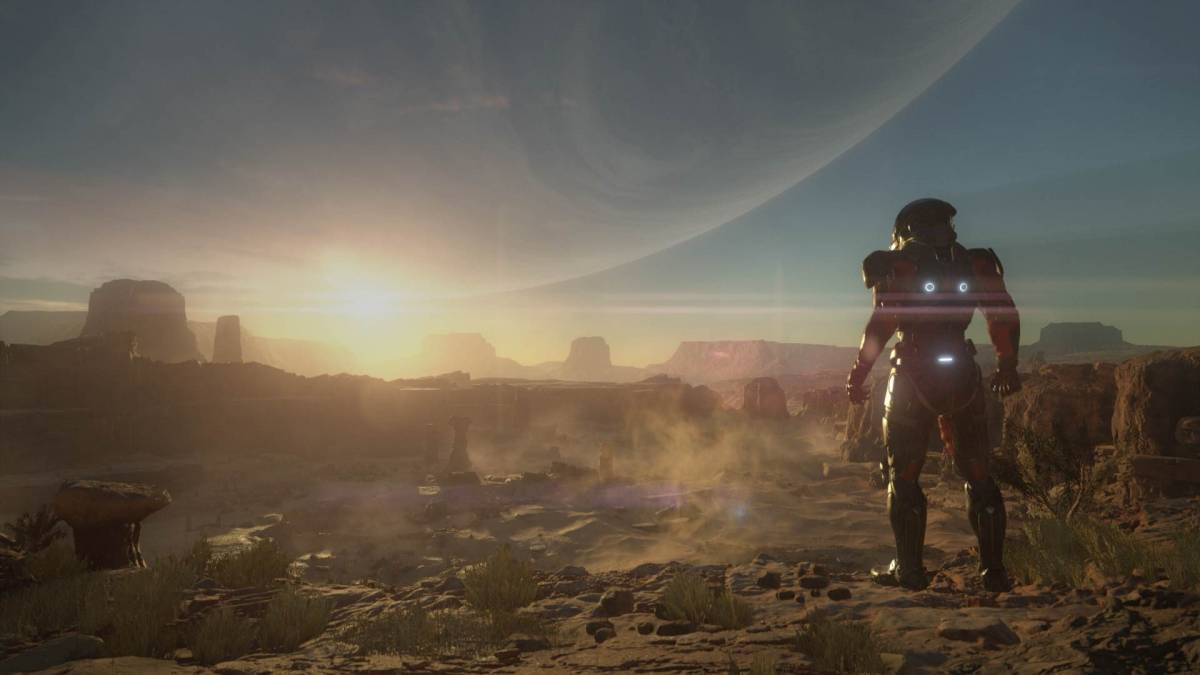
OK, everyone take a deep breath. We’ve made it through the bad part. Look, here’s the thing; I love Mass Effect. I neglected social obligations when the first game was given to me for my birthday, I neglected sleep at college for the second and third games. I wanted to like Andromeda, even as the trailers I saw worried me and the buzz around previews builds and this trial was incredible mixed.
I’m here to tell you, in spite of my principles, that it gets better.
Nexus is home to some of the most infuriating characters, to be sure. Director Foster seems to be the Internet’s lightning rod in particular, with her hostility, flawed, hypocritical grammar police tendencies and especially terrible animation and lip syncing amidst a game full of questionable, static and stilted dialogue animation. That said, this latter portion of the trial also introduces us to characters like Turian security chief Kandros and female Krogan Kesh, the station’s Superintendent. Both exude unmistakable fatigue and stress due to their workload and responsibilities, but are nonetheless both helpful and actually fun to talk to, Kesh especially.
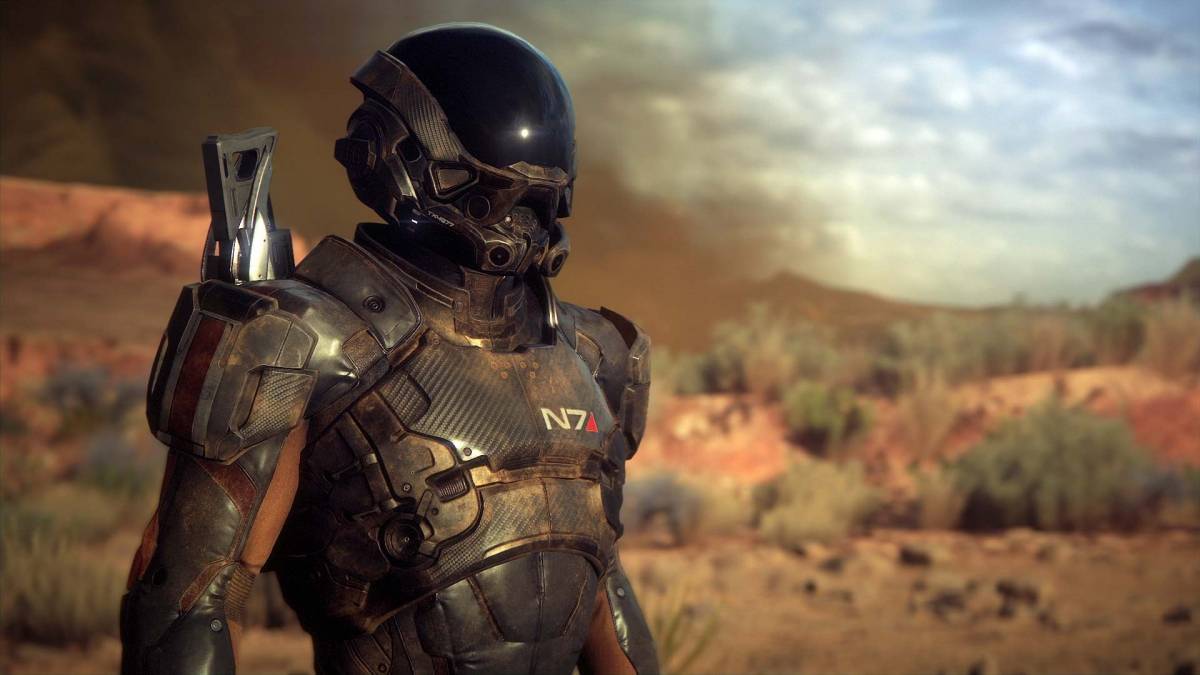
The first companion you receive upon acquiring your ship, a female Turian named Vetra, is friendly enough but immediately establishes herself as manipulative and subversive, through her actions and what she says as opposed to other characters who just flatly tell you about themselves. Vetra can actually bring some personality out of the other companions and characters you meet if you bring her along to Eos.
Ah yes, Eos. The only planet you explore on foot besides the prologue one, it is a desert world reminiscent of the American southwest. The site of a failed colony, you’re tasked with trying to salvage it while investigating Kett activity. Here you first gain access to the Nomad, an unarmed exploration vehicle. It’s a blast to bomb around the rugged, rocky terrain in this thing, and despite the lack of weapons it can still flatten a Kett trooper or hostile animal in short order.
Scouring the desert mining resources (using a similar mechanic to ME2 except on the ground with the Nomad), investigating abandoned outposts and tracking down side quest leads is great fun and really makes you feel like a space explorer. Your primary tool for interacting with the environment is the scanner, a wrist-mounted Omnitool attachment that provides information on tech, organisms and equipment you scan as well as often providing research credits, which allow you to unlock new crafting blueprints.
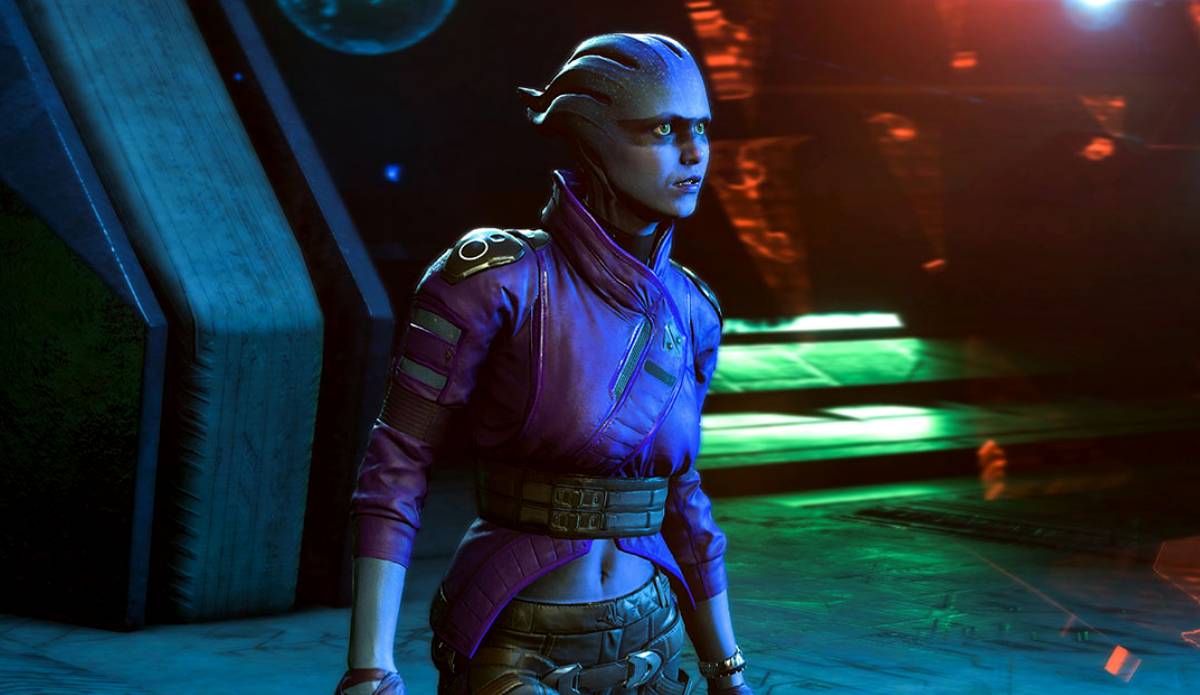
Crafting allows for the creation of weapons, armor pieces and modifications, among other things. Weapons and gear can still be purchased, though credits were not found in abundance in my trial until I sold a bunch of stuff to a salvager on Eos. The resource costs are fairly steep relative to how much of any given mineral or material you find in any one place; I was only able to build a Mattock assault rifle, though I was close to being able to build some other things by the trial’s end. Nonetheless, the intent seems to be that crafting allows for increased flexibility in your kit and combat abilities, allowing you to focus on building what you want and need and not acquiring a massive excess of gear. The interface is a tad clunky, with a few too many prompts and sub-menus nested into each other, but you get used to it.
This combines with the new “Profile” system, which sees the classes of old such as Soldier, Infiltrator and Vanguard transplanted as swappable sets of buffs. You still choose a class at the start, which gives you a headstart in a certain aspect of character building, and these profiles are unlocked as you utilize the abilities they augment more. My Technician class, for example, netted me the Infiltrator and Soldier profiles fairly quickly, since I focused on tech and combat powers. Switching between profiles for different encounters is entirely viable, and provides a nice cushion for those who wish to experiment either out of indecision about their build or just curiosity.
These profiles are justified as the AI bound to your Pathfinder implant, SAM, augmenting your physiology in various ways to boost your effectiveness in certain areas. SAM himself is one of the better characters, one of the more expressive and fun characters despite his robotic voice. The bond forming between Ryder and SAM is definitely the best character interaction taking place so far, and their banter and mission-related dialogue is the highlight of the writing so far.
Last but not least, we come to the combat itself. Andromeda’s combat is decidedly smoother and more mobile than previous entries, encouraging verticality with your team’s jump-jets and a generous amount of variable-height terrain. Enemies are aggressive and hit hard, making fine-tuning of your profiles and skills essential alongside knowing when to remain in cover and when to use the dash-evade or jets to reposition or go on the attack. Healing is no longer accomplished through medi-gel, rather from health packs in the environment, adding another layer of tension once your health starts taking hits. Squad AI is hit or miss, as it always has been – occasionally they’ll save your ass with a well-timed strike, others they’ll get stuck on geometry after you give them an order several times. They work well enough overall, but they’re nothing to write home about.
The first few hours of this game were troubling. I was taken aback at how genuinely poor some of the writing, animation and voice acting was. Over the course of the final five hours or so, the game steadily showed me a better and better time. Whether that continues, I do not know. What I do know is that I’m curious to see more, but not enough to buy it right now, even with the Access discount. It’s just not the complete package I expect out of a Mass Effect title, so I’ll be waiting for full reviews. On the other hand, rest assured that if you do pick up this game, you’ll be in for some solid combat and exploration in gorgeous environments.
Some of the coverage you find on Cultured Vultures contains affiliate links, which provide us with small commissions based on purchases made from visiting our site.
